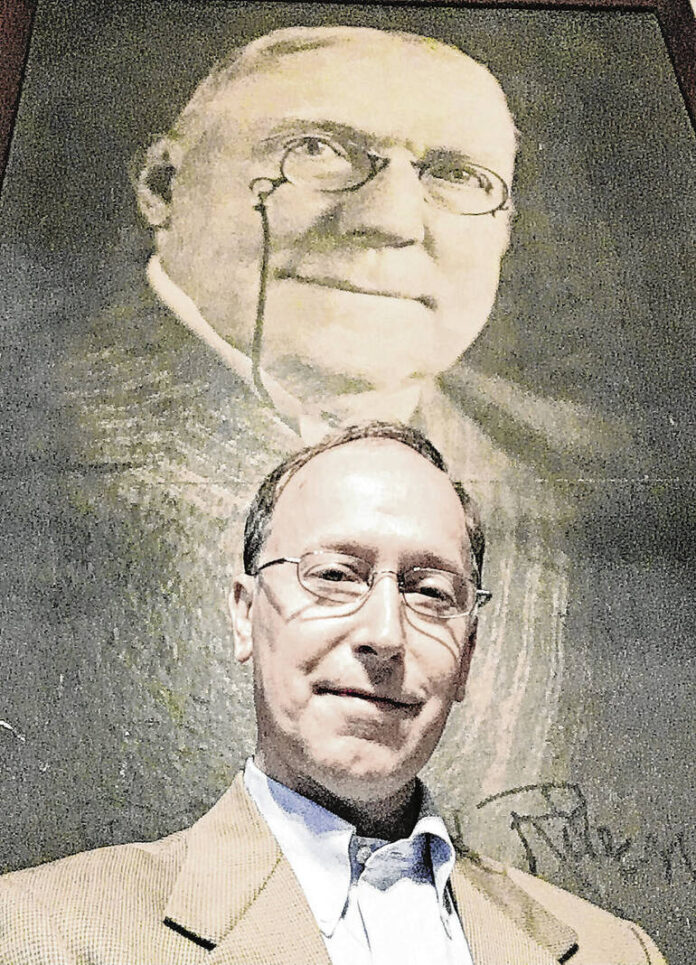Jesus does not waste a word in contrasting the lives of these two men, a rich banquetter and a poor beggar — they were Neighbors Who Never Met. Socially they were poles apart; eternally a significant chasm separated the two in this story.
An earthly story with heavenly meaning is how a parable has been described, so in Luke 16:19-31 we have a gripping parable of contrasting lives and destinies unique to this Gospel, and the only parable where a character has a proper name, Lazarus.
To read this passage is to look into a two-way mirror. First, we see ourselves, and then we see through the same silhouette to our neighbors, if we care to look.
Let’s look into this parable as a two-way mirror. One lived in a palace in luxury and dressed in the regal color of purple — every single day. The other lived as a pauper, and the pauper longed to eat what fell from the rich man’s table or a mere crumb from a single banquet.
To no one’s surprise, Lazarus dies and is “carried to Abraham’s side” (Luke 16:22), and the rich banquetter also passes to a place beneath the pauper in torment (Luke 16:23), and they are separated by a great and impassable chasm.
The Jews of Jesus’ day supposed that departed spirits might know and converse with each other, be it true or not — so the departed have a voice in this parable. Since Jesus’ original audience was the rabble band of followers known as disciples and some select Pharisees, the story had an impact.
Verse 31 seems like a harsh ending, but what did the rich banquetter do that brought him to a point of his final destination?
Was it riches? Notice that he was not condemned for how he gained his wealth, not through extortion or manipulation, or usury. So, no.
Was it dressing in purple? Jesus does not say that in the wearing of purple he exceeded the bound of his income, or rank in life. So, no, on that.
Was it luxury every day? He was not accused of having eaten foods that were prohibited by the Law of Moses or the Prophets, nor having neglected the abstinences or fasts prescribed by it. Scripture does not suggest that he was carried to excess in any of his doings or dealing. So, no, and it’s somewhat unnerving at this point.
What did he do that brought him to the point of his final destination in torment?
Jesus doesn’t clearly say. Even when we come to the end of the one-off parable, it is still strangely inconclusive.
There is a clear warning contained in the takeaway from this parable, though, and it applies today. The warning is, not that we will do wrong, trivial, or excessive things; the real danger is that we do—no—things!
Love has an opposite. It is not hate in its manifest forms, but blatant indifference in the face of the neighbor in need.
Gazing at the two-way mirror of our parabolic lesson. I can begin to see my own silhouette as I peer in at the rich banquetter sitting in purple, and through Luke’s quill, I can decipher Lazarus at his gate longing to eat what might fall from the same table as local dogs lap his many festered sores.
Peering more intently at the two-way mirror, leaning on Luke 16:19-31 one more time to adjust for perspective, isn’t it more obvious the neighbor in need is … Lazarus?
Keep looking for ways to love people, including your neighbor in need.
“We cannot build our individual ladders to heaven and leave the total human enterprise unredeemed of its excesses and corruptions.”
— Reinhold Niebuhr, Moral Man and Immoral Society
Markus Dennis is pastor of Riley Friends Church in Greenfield. This weekly column is written by local clergy members.





